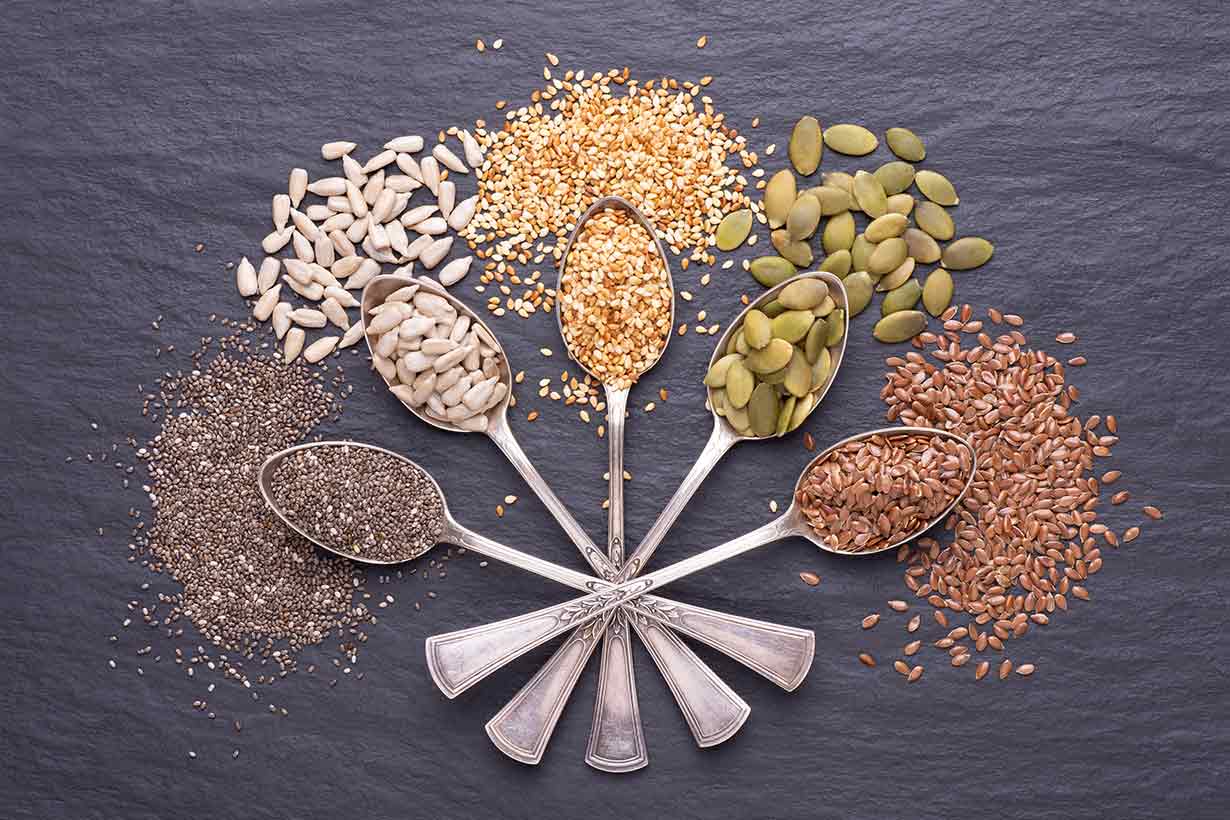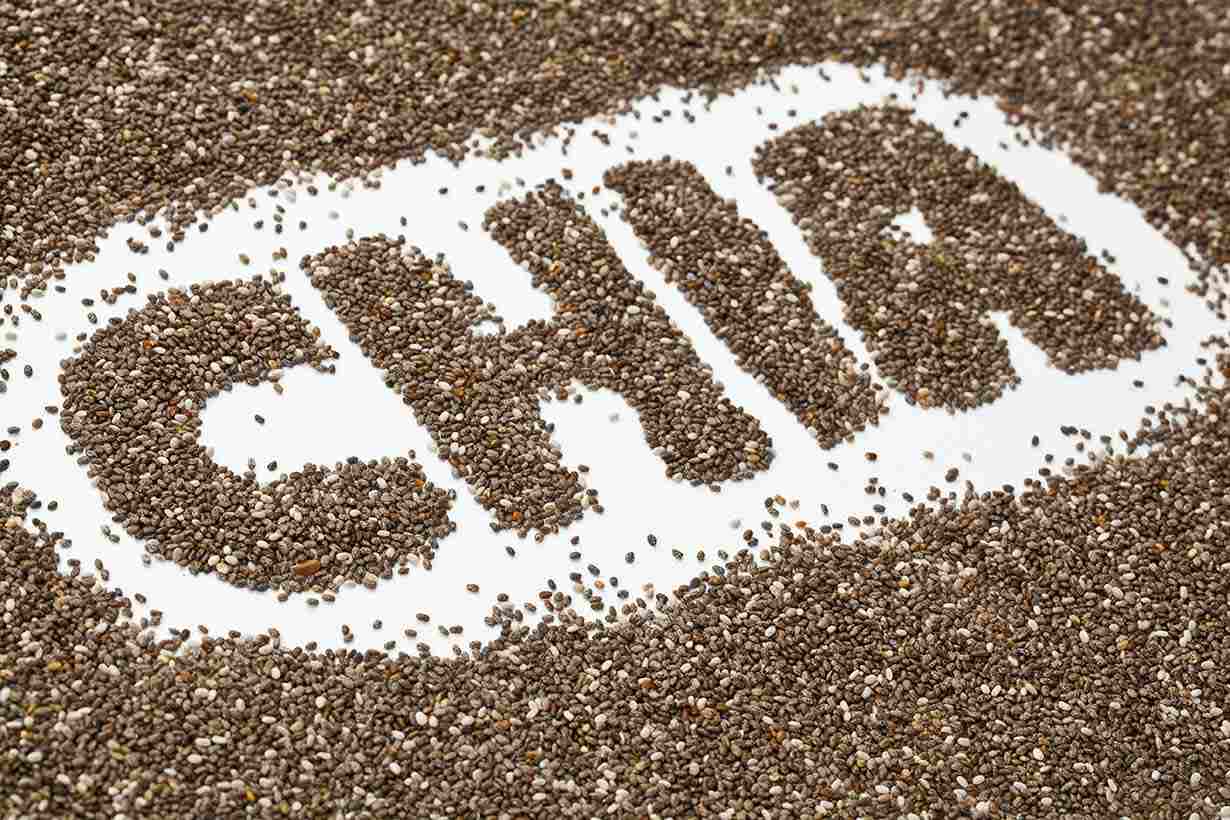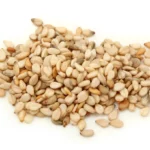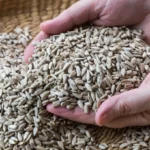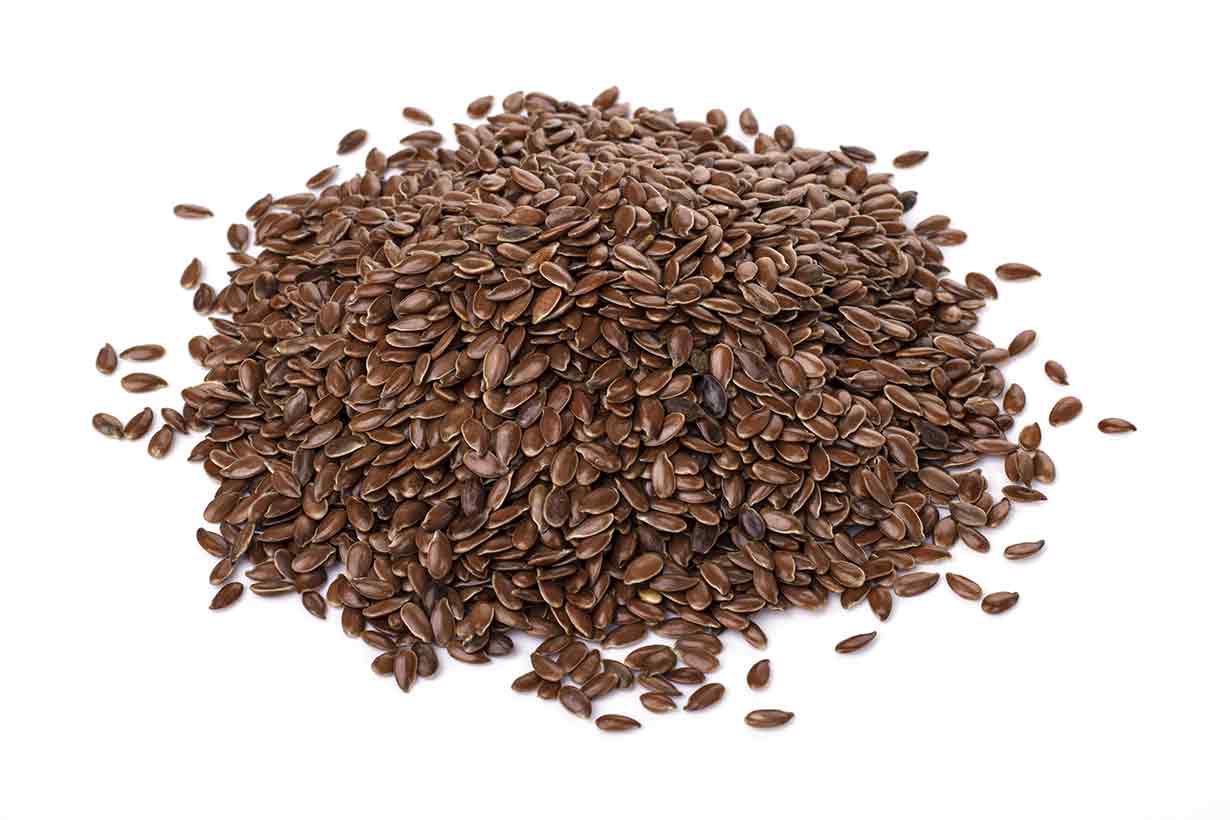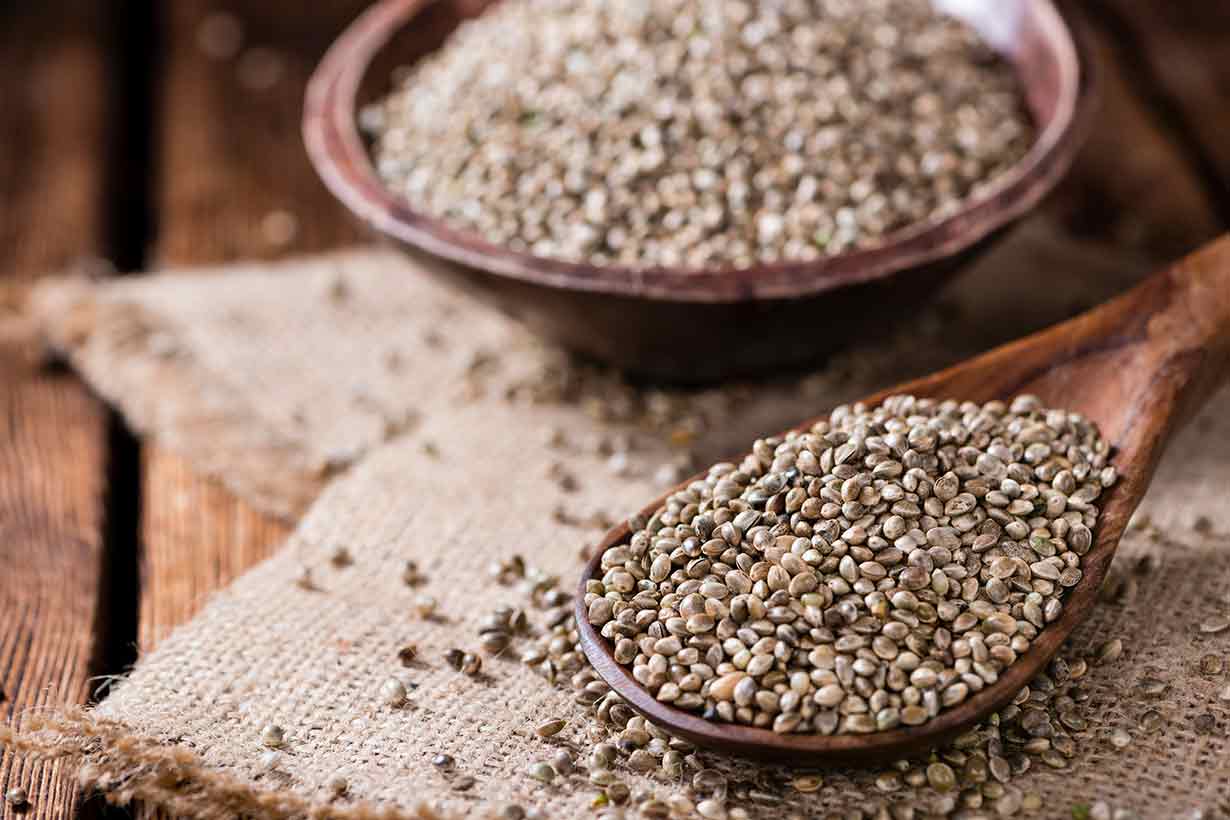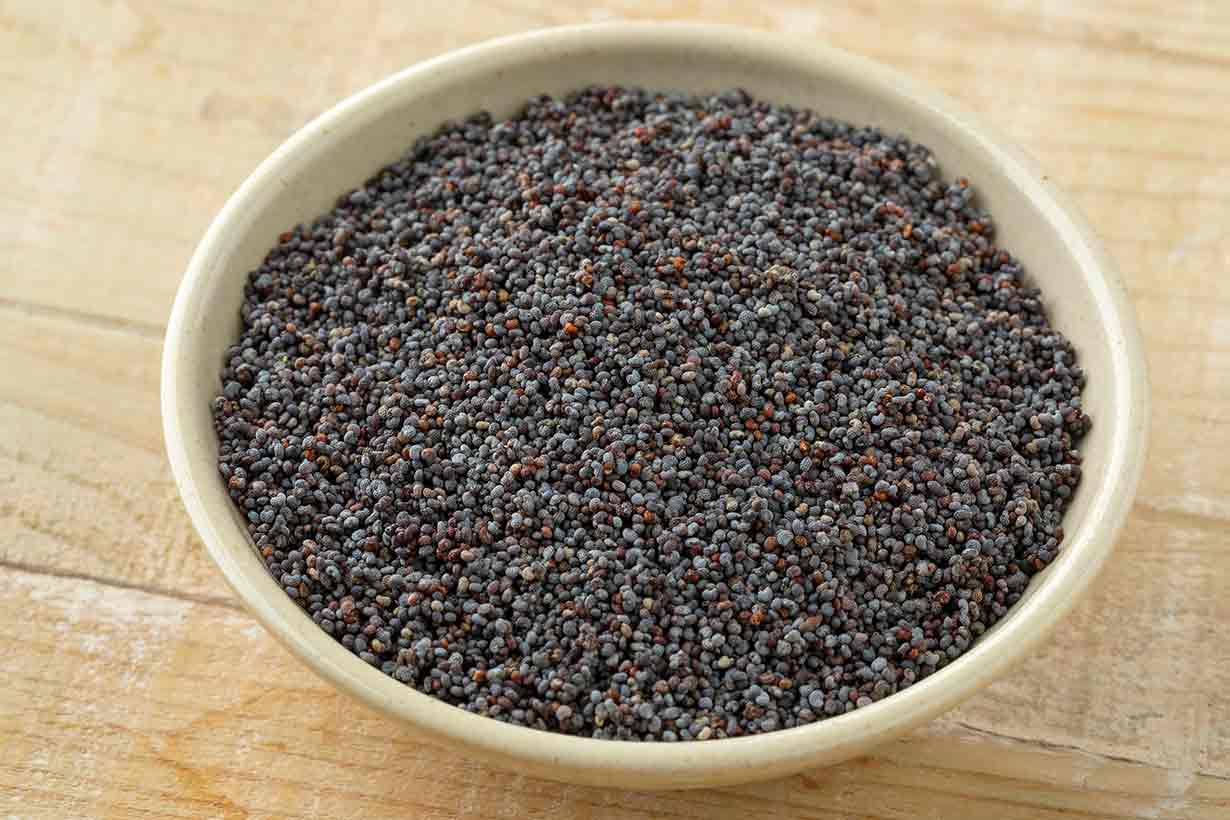Pumpkin seeds may look small, but they’re packed with essential nutrients.
In this article, we’ll examine the nutritional value and the potential benefits they provide.
What makes them so nutritious? Let’s find out.
Table of contents
What Nutrients Are Pumpkin Seeds High In?
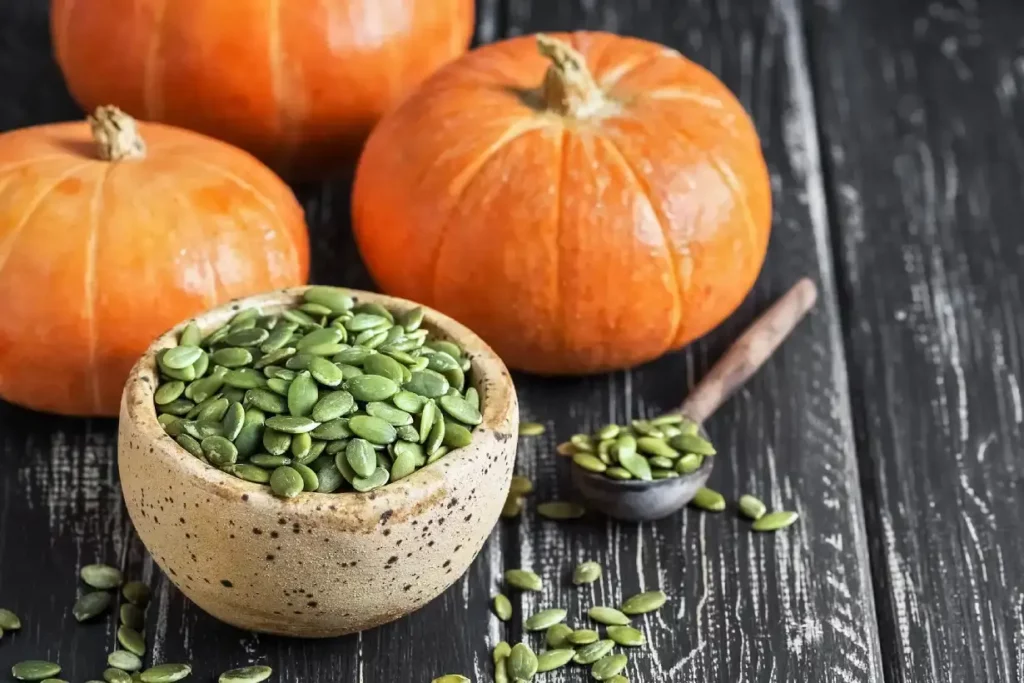
Per ounce (28.35g) serving, pumpkin seeds contain 163 calories and provide an excellent source of the following vitamins and minerals (1, 2):
- Copper: 40% of the daily value (% DV)
- Magnesium: 37% DV
- Phosphorus: 27% DV
- Zinc: 20% DV
They also contain moderate levels of other micronutrients, including iron, potassium, selenium, niacin, and folate.
Are They a Good Source of Protein?
With 8.45 grams of protein per ounce serving, pumpkin seeds have a relatively high protein content (1).
The seeds contain a good range of amino acids, but they have low levels of lysine, making it the limiting amino acid in pumpkin seeds for protein synthesis (3).
When sufficient lysine isn’t available, this will limit the amount of usable protein from pumpkin seeds. However, many other foods provide lysine; if enough is consumed throughout the day, this isn’t a significant issue.
Foods with a high lysine content include cheese, fish, legumes, meat, milk, and poultry (4).
How Much Fiber Do They Have?
Pumpkin seeds are moderately high in fiber; an ounce serving provides 1.84 grams, making them approximately 7% fiber by weight (1).
However, it is worth noting that other seeds contain higher levels.
For instance, chia seeds and flaxseeds provide about four times as much fiber as pumpkin seeds.
Key Point: Pumpkin seeds provide significant amounts of copper, magnesium, phosphorus, and zinc. They are high in protein and contain a moderate level of dietary fiber.
What Benefits Do Pumpkin Seeds Have?
In addition to their nutrient provision, let’s now explore some additional benefits that pumpkin seeds may offer.
1) May Help To Lower Blood Sugar Levels
Thanks to their mix of fats, fiber, and protein, pumpkin seeds can help to slow the blood sugar response to carbohydrate intake.
For example, a randomized controlled trial investigated the effect of incorporating pumpkin seeds into a high-carbohdyrate meal on blood sugar levels.
In this study, 15 participants consumed one of three meals over three nonconsecutive days (5):
- A high-carbohydrate meal
- 65 grams of pumpkin seeds mixed with a high-carbohydrate meal
- 65 grams of flaxseeds mixed with a high-carbohydrate meal
Compared to the high-carbohydrate meal alone, the mixed meal containing 65 grams of pumpkin seeds lowered the post-meal blood sugar rise by approximately 35%. This finding suggests that combining pumpkin seeds with carbohydrates may help to keep blood sugar levels lower.
Findings like this have also been observed in studies on other types of seeds. For example, a systematic review of clinical trials found that sesame seeds could lower blood glucose.
See this nutritional guide to sesame seeds for more information.
2) An Important Source of Magnesium
Magnesium is one of the most notable essential nutrients found in pumpkin seeds.
This is because it can be difficult to find dietary sources with high levels of magnesium, yet pumpkin seeds contain a substantial amount.
The 156 mg of magnesium that an ounce serving of pumpkin seeds provide is equal to 37% of the recommended daily value (1, 2).
Among its many functions, magnesium plays essential roles in regulating blood pressure and blood sugar levels (6).
3) High in Polyphenols
Pumpkin seeds are a rich source of polyphenols—compounds often referred to as “antioxidants.”
In addition to their antioxidant properties, polyphenols can exert a range of effects. These effects may include anti-inflammatory actions as well as exerting beneficial impacts on blood lipids and blood pressure (7, 8).
The major polyphenols found in pumpkin seeds are phenolic acids, such as p-hydroxybenzoic acid (9).
Interestingly, a study on the nutritional composition of pumpkin seeds found that they have significantly higher polyphenols levels when roasted (10).
The study’s authors theorized that this may be due to the roasting process weakening the cell structure of pumpkin seeds, thereby releasing bound polyphenols.
4) Potential Benefits For Heart Health
Pumpkin seeds are a rich source of monounsaturated and polyunsaturated fatty acids. A wealth of research has demonstrated that these fats can have a beneficial impact on heart health and help to reduce cardiovascular risk.
The mechanism for this is through their impact on blood lipids, specifically their ability to lower LDL cholesterol and apolipoprotein B levels (11, 12, 13, 14).
The amount and percentage of each fatty acid found in an ounce of pumpkin seeds are shown below (1):
- Saturated fatty acids: 2.42 g (19%)
- Monounsaturated fatty acids: 4.45 g (36%)
- Polyunsaturated fatty acids: 5.64 g (45%)
Furthermore, clinical trials demonstrate that pumpkin seed oil supplementation may lower systolic blood pressure, significantly raise HDL cholesterol, and decrease LDL cholesterol. These effects would be considered as beneficial for cardiovascular health (15, 16).
Key point: Pumpkin seeds are rich in polyphenols, provide an important source of magnesium, and may have a beneficial impact on blood lipids and blood sugars.
Nutrition Facts
A typical daily serving of pumpkin seeds is one ounce (28.35 grams), which is equal to a small handful.
Here is the full nutritional profile of pumpkin seeds per ounce serving (1, 2):
| Nutrient | Amount | % Daily Value |
|---|---|---|
| Calories | 163 kcal | |
| Carbohydrate | 4.17 g | 1.5% |
| Fiber | 1.84 g | 6.6% |
| Sugars | 0.37 g | |
| Fat | 13.9 g | 17.8% |
| Saturated | 2.42 g | 12.1% |
| Monounsaturated | 4.45 g | |
| Polyunsaturated | 5.64 g | |
| Omega-3 | 0.03 mg | |
| Omega-6 | 5.6 mg | |
| Cholesterol | 0 mg | 0% |
| Protein | 8.45 mg | 16.9% |
Vitamins
| Vitamin | Amount | % Daily Value |
|---|---|---|
| Choline | 17.9 mg | 3.3% |
| Folate, DFE | 16.2 mcg | 4.1% |
| Vitamin A, RAE | 0 mcg | 0% |
| Vitamin B1 (thiamin) | 0.02 mg | 1.7% |
| Vitamin B2 (riboflavin) | 0.04 mg | 3.1% |
| Vitamin B3 (niacin) | 1.26 mg | 7.9% |
| Vitamin B6 | 0.03 mg | 1.8% |
| Vitamin C | 0.51 mg | 0.6% |
| Vitamin D | 0 mcg | 0% |
| Vitamin E | 0.16 mg | 1.1% |
| Vitamin K | 1.28 mcg | 1.1% |
Minerals
| Nutrient | Amount | % Daily Value |
|---|---|---|
| Calcium | 14.7 mg | 1.1% |
| Copper | 0.36 mg | 40% |
| Iron | 2.29 mg | 12.7% |
| Magnesium | 156 mg | 37.1% |
| Phosphorus | 332 mg | 26.6% |
| Potassium | 223 mg | 4.7% |
| Selenium | 2.66 mcg | 4.8% |
| Sodium | 5.1 mg | 0.2% |
| Zinc | 2.17 mg | 19.7% |
Foods That Nutritionally Complement Pumpkin Seeds
We’ve looked at which nutrients pumpkin seeds provide in high amounts, but what about the nutrients they contain in lower amounts?
The vitamins and minerals present in the lowest concentrations are calcium and vitamins A, C, D, E, and K.
Based on this, some people may wish to combine pumpkin seeds with complementary foods high in these nutrients to enhance overall nutrient intake.
Here are some foods rich in the nutrients that pumpkin seeds lack:
- Calcium: Cheese, milk, calcium-set tofu, fortified soy milk, sardines
- Vitamin A: Carrots, eggs, liver, pumpkin, sweet potatoes, spinach
- Vitamin C: Bell peppers, broccoli, kiwi, lemon, orange, potatoes
- Vitamin D: Eggs, fortified milk, salmon, sardines, UV-enriched mushrooms
- Vitamin E: Almonds, avocadoes, hazelnuts, peanuts, spinach, wheat germ,
- Vitamin K: Asparagus, cabbage, beet greens, kale, kiwi, spinach
Final Thoughts
Pumpkin seeds are highly nutritious and are an especially rich source of unsaturated fatty acids, protein, copper, and magnesium.
Adding a small handful of pumpkin seeds to a smoothie or yogurt is a simple way to boost your nutrient intake.

